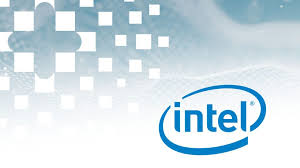Source: technologytimes.pk
AI Needs To Be On the Edge
In the age of innovation, as data continues to grow, there’s a real need for data storage and data computation to be located on the device. Privacy, security, and speed are the biggest reasons that the distributed Edge model can work better in certain use-cases. When we are all concerned about our personal data being stored in a cloud server, what if the app can handle our personal data on device instead. With Edge AI, personalization features that we want from the app can be achieved on device. Transferring data over networks and into cloud-based servers allows for latency. At each endpoint, there are security risks involved in the data transfer.
While cloud computing offers unquestionable economies of scale, a distributed computing model is driven by the nature of the data itself. The volume of data will make it difficult or expensive to move due to bandwidth costs or availability. The velocity of data will catalyze more real-time applications that cannot be limited by network latency. And the variety of data will be governed by regulatory, privacy and security constraints.Jonathan Ballon, Vice President and General Manager, Internet of Things Group, Intel.
This is why the Edge AI Software market is forecasted to grow from $355 million in 2018 to 1.12 trillion dollars by 2023.Today In: AI
Edge AI Training Is An Opportunity for All Types of Developers
At the beginning of the AI evolution, we were concerned with crossing over from statistical models to data science, machine learning, and building algorithms that run on the Cloud. Now, software engineers increasingly find that their projects are naturally scoped to include an AI component. You don’t have to be a machine learning engineer to know about deep learning or reinforcement learning.
PROMOTED
Now, IoT developers who may have been sitting on the sidelines working on software projects that are more feature-based than data-based, will have an opportunity to get involved in the AI evolution. The Intel® Edge AI for IoT Developers Nanodegree Program will introduce students to the Intel® OpenVINO™ toolkit that will allow developers to deploy pre-trained deep learning models through a high-level C++ or Python inference engine AP integrated with application logic.
Students will work on Intel’s IoT DevCloud to develop, test, and run their workloads on a cluster of the latest Intel hardware and software. Not only will IoT developers learn to apply AI in their applications, but they will also work on performance and other issues that arise with building data-centric applications.
Software engineers, machine learning engineers, data scientists and other technologists who’ve been working on Cloud-based AI applications now have a new direction to take in their learning path. Learning to develop Edge AI applications can allow a new perspective toward more user-driven application development of AI. With more user-based personalizations directly on the device, business solutions, features, and user data can be viewed from a more user-centric perspective.
This program will be beneficial for all developers who want to be involved in AI-based projects.
The Intel and Udacity Collaboration
This Intel and Udacity collaboration will be the pioneer program that will lay the foundation of training in Edge AI for the next years to come. Just like Udacity’s hugely popular machine learning and AI Nanodegree programs, Intel® Edge AI for IoT Developers Nanodegree Program will facilitate streamlined training, project-based learning, mentorship and certification that will allow for a quick ramp-up of both AI and IoT development knowledge.
For computer science majors fresh out of school looking for an entry point into the industry, this type of program can offer both opportunities and skills that bridge the gap between education and real-world applications.
The Vision of Edge AI
At a time when we are all concerned about our job security and prospects due to the coronavirus pandemic, it’s good to know that there are new paths to explore. If you don’t currently work in manufacturing or healthcare, it’s difficult to envision Edge AI used on factory assembly lines, and in Urgent Care medical imaging equipment.
But, how about imagining the technology in drones, security cameras, robots and self-driving cars?
There are many smart phone apps that we use day to day that can potentially deliver more personalized features through an AI component.
The value and impact of Edge AI applications is showing no limits when it comes to use cases. The ingenuity of companies during this COVID-19 crisis is humbling. Industries including public safety and healthcare, for example are designing and deploying solutions now that leverage AI and computer vision technologies to deliver accurate and real-time insights to help with tracking, testing and treatment. The technology exists, we are only limited by the imagination at scale of the developer community.Jonathan Ballon, Vice President and General Manager, Internet of Things Group, Intel.
This Edge AI evolution is the next generation of AI evolution that will change the way that we interact with our devices and offer better and more secure ways to deploy AI applications.
Projects And Mentors
Students from the program will learn directly from experienced professionals in the Edge AI and IoT field such as Stewart Christie, who has been with Intel for almost 20 years, and is currently the Community Manager of the Internet of Things Developer Program; Archana Iyer, former Research Engineer at Saama; Soham Chatterjee, former Software Innovator at Intel; and Michel Virgo, Senior Curriculum Manager at Udacity.
The Project-based approach that Udacity uses will allows students to learn hands-on skills while interacting and receiving mentorships from experienced professionals. Many developers are familiar with this type of quick ramp up of development skillsets across multiple areas.


